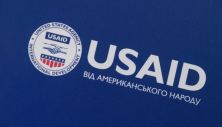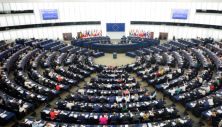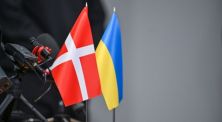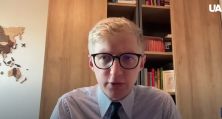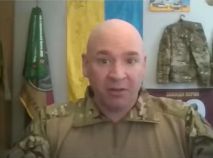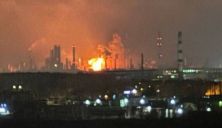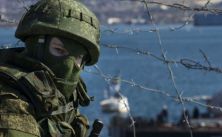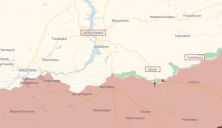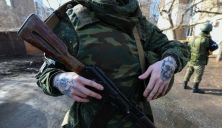The Kremlin is increasingly aware that the West is not responding to nuclear threats, prompting Russian President Vladimir Putin to search for new ways to enforce his red lines.
In early September, Putin warned that if the West approved Ukraine’s strikes deep into Russia, it would mean Moscow is at war with NATO. Russian propagandists then started brandishing nuclear threats.
However, within the Kremlin, there is growing recognition that the repeated use of nuclear threats is losing its impact, and Moscow’s red lines are continually being crossed. Analysts and officials close to Russian diplomats say Putin is now seeking a more calculated and restrained response to the West if it allows Ukraine to use long-range missiles to strike Russian targets.
“There has been an oversaturation of nuclear threats,” said a Russian official who spoke anonymously due to the sensitivity of the topic. “There is now immunity to such statements, and they no longer frighten anyone.”
A Russian academic, closely connected with high-ranking Russian diplomats, agreed, calling the nuclear option “the least likely” scenario because it would alienate Russia’s partners in the Global South and is not seen as militarily effective.
“This entire discussion about the nuclear threshold exaggerates the threat of such escalation and underestimates alternative options,” the academic added. “The West has a global military infrastructure, and there are many vulnerable points.”
Putin is exploring different avenues to curb Western support for Ukraine and enforce his red lines, said Tatiana Stanovaya, founder of the French political consultancy R-Politik. “There are options he doesn’t want to use, and there are options he is ready to consider now,” she said, noting that Putin views nuclear weapons as “the worst option for everyone, including himself.”
Nuclear measures or a direct attack on NATO territory would only be considered if Putin felt Russia’s existence in its current form was at risk, Stanovaya said. “In that case, the West would have to go much further than what is being discussed now.”
Russian officials have appeared somewhat reassured by the apparent hesitation of the United States to lift restrictions on Ukraine striking military targets deep inside Russia with Western missiles. There is growing expectation that if such permission is granted, it will be “very limited,” according to analysts and officials.
However, Putin is still under pressure to respond and prevent his red lines from being continuously crossed.
“There is an understanding that the red lines drawn by Moscow are being ignored by the West, and Moscow needs to take more significant steps to show its seriousness,” said the academic.
Moscow may respond with covert operations against military or infrastructure targets in the West, where Russian involvement would be hard to prove. It could also turn to proxy groups already fighting against Western interests, like the Houthi militia in Yemen, which attacks ships in the Red Sea, said Lawrence Freedman, Emeritus Professor of War Studies at King’s College London.
“He doesn’t want the situation to escalate into something dramatic or radical, like nuclear weapons or direct combat between our forces and his, but that doesn’t mean something serious isn’t happening,” Freedman said.
Kremlin-linked political analyst Sergey Markov said there is growing awareness within the Russian military that “Russia has spoiled the West, and we talk a lot about red lines but don’t take action. At some point, we will have to escalate.”
Markov suggested that potential responses could include closing the British embassy in Moscow or striking airbases in Poland and Romania where F-16 fighters being deployed to Ukraine are stationed. “Since Russia is confident that strikes on Moscow will inevitably happen, we should strike first,” he said.
Putin might try to ramp up threatening rhetoric and play the “golden card” by escalating before the U.S. elections, Markov added. “If Putin escalates, the U.S. will fear nuclear war, and Trump will win.”
Freedman noted that Putin’s nuclear threats are deliberately ambiguous to heighten the sense of danger. “It sounds threatening, but he never explicitly states what he plans to do. He leaves room for interpretation, and people interpret the worst.”
As the effectiveness of this approach declines, Putin has yet to devise a replacement strategy, Stanovaya pointed out, noting that uncertainty is growing as “nobody understands” how Putin will ultimately react to each specific action. “I think Putin doesn’t understand either,” she said.
Read also: Yermak claims Russia preparing scenario of nuclear disaster
